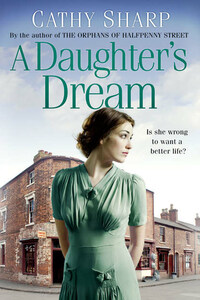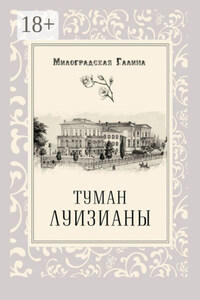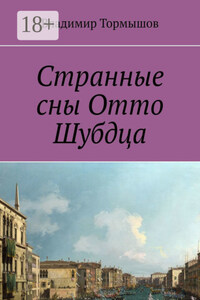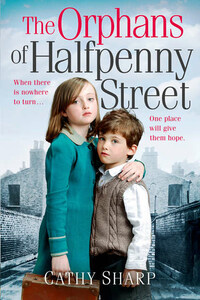Harper
An imprint of HarperCollinsPublishers Ltd
The News Building
1 London Bridge Street
London SE1 9GF
www.harpercollins.co.uk
First published as âAmyâ in Great Britain by Severn House Large Print 2004
Copyright © Linda Sole
Cover design © HarperCollinsPublishers Ltd 2017
Cover photographs © Gordon Crabb/Alison Eldred (girl); Shutterstock.com (background).
Linda Sole asserts the moral right to be identified as the author of this work.
A catalogue copy of this book is available from the British Library.
This novel is entirely a work of fiction. The names, characters and incidents portrayed in it are the work of the authorâs imagination. Any resemblance to actual persons, living or dead, events or localities is entirely coincidental.
All rights reserved under International and Pan-American Copyright Conventions. By payment of the required fees, you have been granted the non-exclusive, non-transferable right to access and read the text of this e-book on screen. No part of this text may be reproduced, transmitted, down-loaded, decompiled, reverse engineered, or stored in or introduced into any information storage and retrieval system, in any form or by any means, whether electronic or mechanical, now known or hereinafter invented, without the express written permission of HarperCollins.
Source ISBN: 9780008168643
Ebook Edition © January 2017 ISBN: 9780008168650
Version: 2016-12-08
As a small child I was afraid of the man with the staring eyes. In my worst nightmares he came after me, shouting and threatening to kill me. His breath stank of strong drink and his eyes were bloodshot. In my dreams he caught me and then my father came and chased him away â but he always came back, and I knew that one day my father would not be there to save me.
Perhaps it was because of the dream that I hated living in the lanes. In the dream I was playing in the lane near my home with other children, and it was there that the man came after me. For as long as I could remember I had wanted to escape, to live somewhere different, away from the dirt and noise of the area around the London docks, and I envied my uncle Tom, who had gone away to be a doctor. I had promised myself that when I grew up I would leave, too, and my idea of heaven was probably very like the house that Matthewâs parents lived in, at which I had been staying for the past few days.
Living in suburbia might not be everyoneâs idea of perfect bliss, but it was certainly mine. Looking back at the Cordersâ house on that sunny morning in June 1923, I experienced a deep sense of loss and regret that it was time for us to leave. There was nothing remarkable about the house; it had three bedrooms and a bathroom upstairs, a sitting room, dining room and kitchen downstairs, and was furnished in a very ordinary way. Yet for me those few days had been ones of perfect contentment.
âWhat was that sigh for?â Matthew asked, looking at me with a little smile of amusement flickering about his mouth. Matthew Corder was twenty-three, four years older than me, attractive rather than wildly handsome, with reddish-brown hair and dark chocolate-brown eyes. It was his smile that had made me notice him, the laughter in his eyes that saw the fun in everything that first made me fall in love with him.
We had met at Bournemouth, when Matthew was on holiday and I was taking the art classes that my mother thought were a waste of time. Although she had encouraged my brothers, Jon and Terry, to leave when they were my age, she had wanted to keep me at home. My father had persuaded her that it would do me good to see more of the world, to broaden my outlook on life, and so in the end she had agreed that I should go.
To me, my father was the most wonderful person in the whole world, and I adored him. Although even I couldnât have called him handsome, he had a kind, generous face and there was so much love in him for all of us. When I was small I loved the days best when my father took us somewhere special. It might be the seaside, or a trip to the fair or a visiting circus, or it might just be a day spent walking in the country, but whatever it was I was happy because he was with us.
In the eyes of the world, Joe Robinson had done all right for himself. He owned a lot of property and he wasnât short of a bob or two, as the people of the lanes might say. He could have lived in a house like the Corders owned, or perhaps somewhere even better, but my mother refused to move from the lane she had lived in for most of her life, and my father always gave her exactly what she wanted.
Sometimes I felt angry with my mother because she refused to let him buy us a better house, but deep down I loved her. I loved her almost as much as I loved my father, but not quite. No one could ever take my fatherâs place in my heart â not even Matthew.













